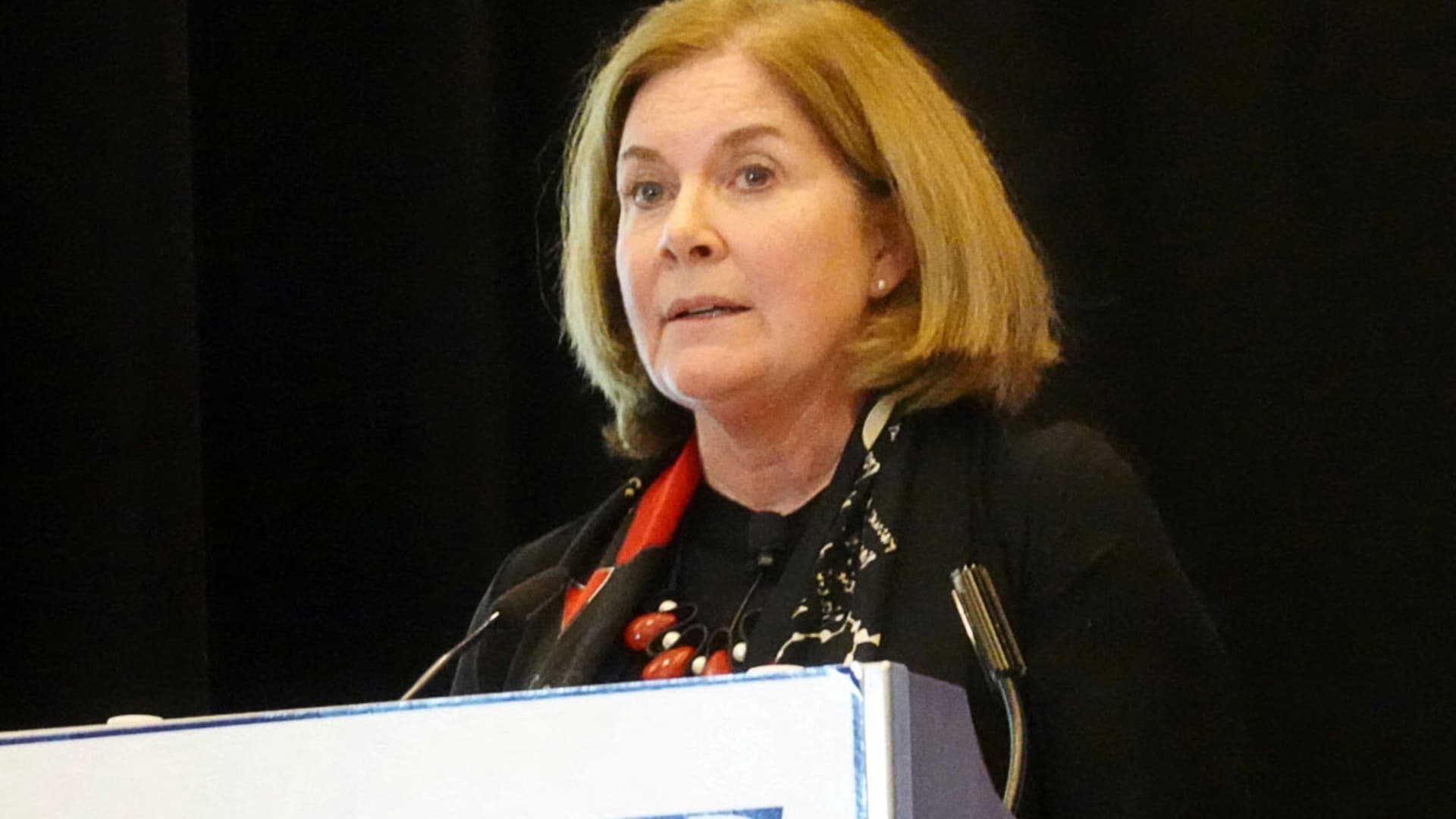[ad_1]
As her 40-year central banking career comes to a close, Kansas City Federal Reserve President Esther George is advising her colleagues to stay tough in their efforts to stamp out runaway inflation.
George said Thursday that she thinks the Fed should raise its benchmark borrowing rate above 5% and keep it there until there are substantial signs that prices are stabilizing.
“Holding that until we get evidence that inflation is actually coming down is really the message we’re trying to put out there,” she told CNBC’s Steve Liesman during a “Squawk Box” interview. “I’ll be over 5% and I see staying there for some time, again until we get the signal that inflation is really convincingly starting to fall back toward our 2% goal.”
At the December Fed meeting, the rate-setting Federal Open Market Committee voted to raise the fed funds rate half a percentage point to a range of 4.25%-4.5%.
Meeting minutes released Wednesday indicated that members see no chance of any rate cuts in 2023, and they expressed concern over whether the public mistakenly might view the step down in rate hikes, from a string of four straight three-quarter point moves, as a softening in policy.
Asked whether her view is that the funds rate should hold above 5% into 2024, George replied, “It is for me.” That statement comes a day after Minneapolis Fed President Neel Kashkari wrote that he thinks the funds rate should rise to 5.4% and could go even higher if inflation doesn’t come down.
In previous comments, George has said the tighter monetary policy is expected to tamp down demand and slow economy, possibly enough to create a recession. She said in her remarks to CNBC that she doesn’t see that as inevitable, but rather as a possibility.
“I’m not forecasting a recession,” she said. “But I’m quite realistic that when you see below-trend growth and the idea that our instrument is going to work on demand, bringing that down, it doesn’t leave a lot of margin there. Any shock could come, any risk to the outlook could send the economy in that direction. So it’s not my forecast, but I do understand that bringing demand down creates that sort of possibility.”
George is leaving the Fed this month as she hit the mandatory retirement age of 65. She has been the Kansas City president for more than 11 years and has served there for more than 40 years.
No replacement has been named. George was an FOMC voter in 2022; her replacement will not vote until 2025.
[ad_2]
Image and article originally from www.cnbc.com. Read the original article here.

